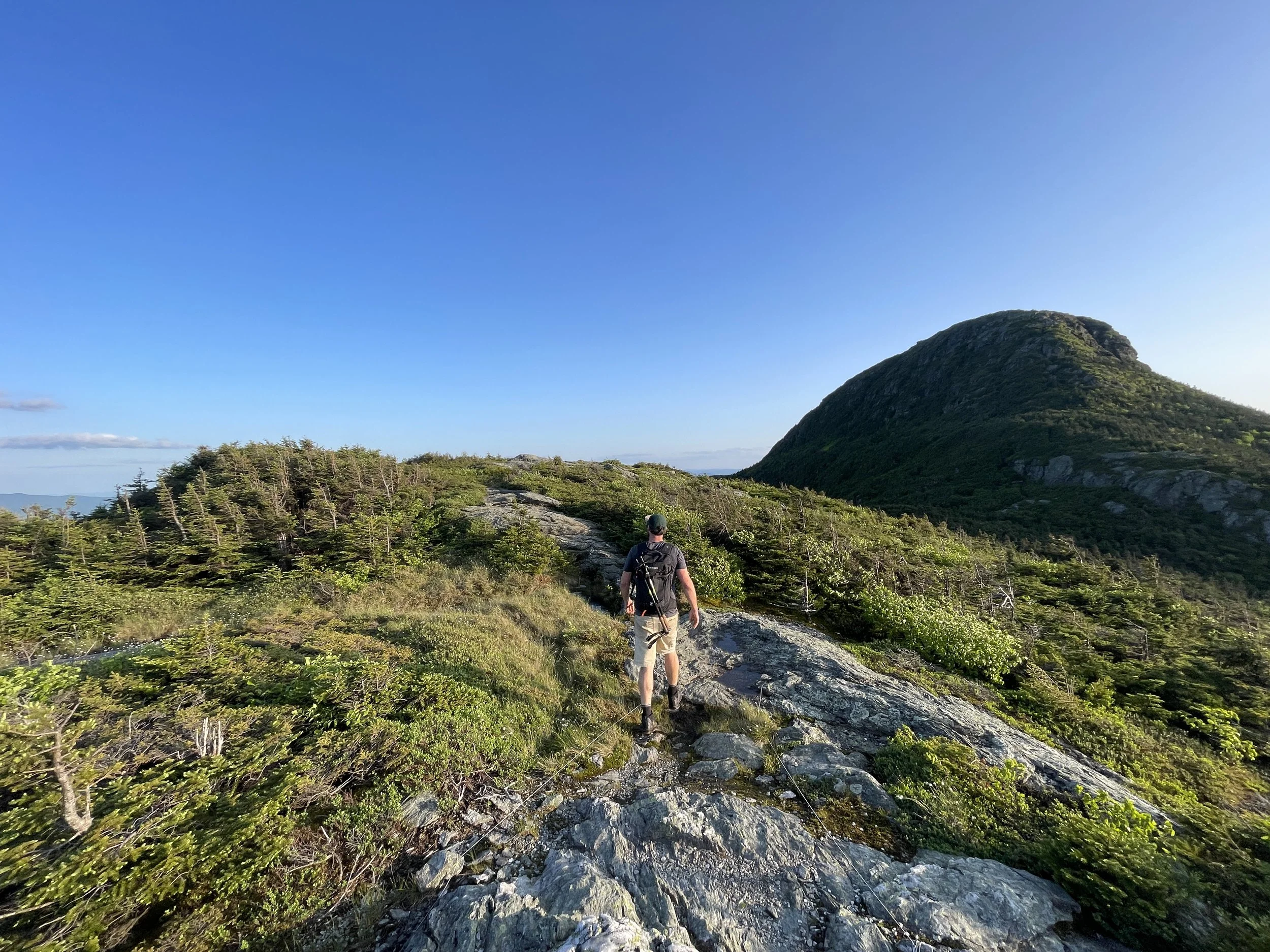Why Every Trail Athlete in Vermont Should Get a Movement Assessment
Trail athletes push their bodies through rugged, uneven terrain, constantly adapting to roots, rocks, and elevation changes. Whether you're a trail runner navigating technical singletrack or a mountain biker climbing steep switchbacks, your body endures repetitive impact, lateral movement, and high variability in footing. These elements create a unique set of physical demands that differ significantly from road-based or indoor sports.
READ: Vermont Physical Therapy for Active Lifestyles: Keeping You on the Trails and Roads
Despite being conditioned for the outdoors, many trail athletes overlook how minor imbalances or limitations in mobility, stability, or strength can lead to overuse injuries or performance plateaus. That’s where movement assessments come in—they identify inefficiencies before they become injuries, helping athletes build resilience and move with greater control in unpredictable environments.
At Summit Physical Therapy and Performance in Stowe, Vermont, our team understands the demands of the Green Mountain trails. We offer personalized movement assessments tailored specifically for the challenges trail athletes face, whether you're training for your next ultra or looking to stay healthy throughout the season.
What Is a Movement Assessment and How Does It Help?
A movement assessment is a comprehensive evaluation of how your body performs fundamental movements—like squatting, lunging, or balancing—to uncover limitations, asymmetries, or dysfunctions in mobility, stability, and coordination. Unlike a basic fitness screen, a movement assessment looks at how well your joints, muscles, and nervous system work together during dynamic activity.
For trail athletes, this insight is invaluable. Whether it’s identifying a hip imbalance that affects your uphill stride or uncovering poor ankle mobility that compromises your ability to stabilize on uneven terrain, a movement assessment highlights the root causes of inefficient movement patterns. It’s not just about finding weaknesses; it’s about understanding how those weaknesses impact performance and increase injury risk.
At Summit PT, movement assessments are customized to mimic the real-world demands of trail sports. We analyze sport-specific motions, test joint control under fatigue, and assess your body's readiness for the unpredictable challenges found on Vermont’s trails. The result is a clear plan of action to correct imbalances, optimize performance, and support longevity in your sport.
READ: Runeasi 3D Gait Analysis: What It Is and Why It Matters
How Summit PT in Stowe, Vermont Tailors Movement Assessments for Trail Athletes
At Summit Physical Therapy and Performance, our movement assessments are far from one-size-fits-all. We design each evaluation with your sport, goals, and specific movement demands in mind. For trail athletes, this means assessing how you perform under the same dynamic and variable conditions you face outside—on dirt, gravel, inclines, and unpredictable surfaces.
Our clinicians begin by discussing your training history, injury background, and performance goals. Then, we guide you through a series of functional movement screens, strength and mobility tests, and sport-specific drills that mimic trail scenarios. We might observe how your hips and knees align when you climb a step-up, or how your balance holds during a simulated trail run stride. We even assess fatigue-based movement control to reflect the realities of long races or back-to-back training days.
The goal is twofold: to uncover hidden movement faults that could lead to injury, and to build a targeted plan to correct them. Our assessments often lead into personalized treatment or performance sessions focused on mobility work, neuromuscular re-education, strength training, or gait retraining—depending on your needs. The entire process is collaborative and performance-driven, designed to help you move more efficiently and confidently on the trail.
When and How Often Should Trail Athletes Get Assessed?
Movement assessments aren’t just for when you’re injured—they’re most effective when used proactively. For trail athletes, we recommend undergoing an assessment at key points in your training year: before ramping up mileage, during periods of increased intensity, or following any signs of discomfort or performance decline.
If you're preparing for a new season, tackling a big race, or returning after time off, a movement assessment offers a reset. It ensures your body is aligned and resilient before the demands increase. For athletes training year-round, a semi-annual or quarterly check-in can help catch and correct issues before they accumulate.
READ: Healthy Hips for Runners and Hikers - 3 Key Components
Some signs it’s time for an assessment include:
Lingering tightness or soreness after workouts
Recurring pain in the same joints or muscles
A noticeable drop in performance or coordination
Fatigue setting in earlier during runs or rides
At Summit PT, we help you time your assessments strategically—so your body is always primed for the terrain ahead. And if you’ve already had an assessment, re-checks help measure your progress and refine your training or recovery strategies.
Optimize Performance and Stay Injury-Free on the Trails
The trails of Vermont offer some of the most challenging and rewarding terrain in the Northeast—but they also demand more from your body than most athletes realize. Whether you’re a seasoned ultra-runner, weekend mountain biker, or new to the sport, a movement assessment is one of the smartest ways to protect your body and improve performance.
Rather than waiting for pain or injury to force a break in training, trail athletes who prioritize movement assessments gain early insight into their biomechanics. This leads to more efficient movement, fewer setbacks, and a stronger foundation to handle the rigors of technical trails.
At Summit Physical Therapy and Performance in Stowe, we specialize in helping outdoor athletes stay active, healthy, and trail-ready. Our movement assessments are tailored, data-informed, and built around your unique goals. If you're serious about optimizing your trail performance and staying injury-free, now is the time to take that first step.
Ready to assess your movement and level up your trail game? Contact Summit PT today to schedule your assessment and move smarter on every mile.

